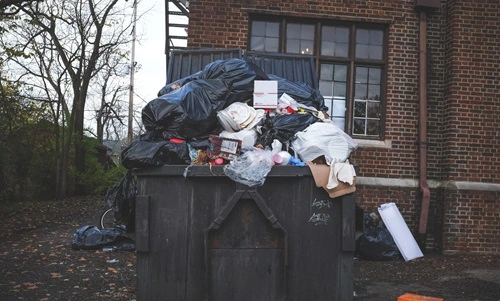Yes, it can be illegal to put trash in a dumpster if the dumpster is not yours or if it violates local laws and regulations. This act, commonly referred to as “illegal dumping” or “theft of services,” can lead to fines, criminal charges, and other penalties depending on the circumstances and location.
Legal Framework Around Dumpster Use
1. Trespassing and Theft of Services
Dumpsters are often located on private property and are intended for the use of the property owner, their tenants, or authorized users. Placing trash in such dumpsters without permission is considered trespassing or theft of services, which are punishable offenses in many jurisdictions. These laws aim to prevent unauthorized use of waste disposal services that the property owner is paying for.
For example:
- Trespassing: Entering private property to access a dumpster without permission can result in trespassing charges.
- Theft of Services: Using a dumpster without paying for waste disposal services can be classified as theft, even if no physical item is stolen.
2. Local Ordinances
Many cities and towns have specific ordinances prohibiting unauthorized trash disposal. These rules often define where, when, and how trash can be disposed of:
- Public Dumpsters: Even if a dumpster is located in a public area, some municipalities restrict its use to authorized individuals or businesses.
- Construction Dumpsters: These are usually rented for specific projects, and unauthorized use is prohibited by law.
Violating these ordinances can result in fines ranging from $50 to several hundred dollars, depending on the location.
Environmental and Public Health Concerns
Unauthorized dumping can create environmental and public health hazards:
1. Overflowing Dumpsters: Unauthorized use can lead to overfilled dumpsters, attracting pests and causing unsanitary conditions.
2. Improper Waste Disposal: Dumping prohibited items, such as hazardous materials, can lead to environmental damage and pose risks to public health.
3. Municipal Costs: Cities and property owners often bear the financial burden of cleaning up illegally dumped trash.
When Is Dumpster Use Legal?
You can legally use a dumpster under the following conditions:
1. Owner’s Permission:
If you obtain explicit permission from the dumpster owner or the property manager, using the dumpster is generally legal.
2. Public Access:
Some municipalities provide public dumpsters for residents to dispose of trash, often requiring a fee or a permit.
3. Your Own Dumpster:
If the dumpster is rented or owned by you, or if it is part of a service you pay for (e.g., apartment complex dumpsters), you can use it as intended.
Penalties for Illegal Dumpster Use
The penalties for unauthorized trash disposal vary depending on state and local laws:
- Fines: Most jurisdictions impose fines ranging from $50 to $1,000 for illegal dumpster use. Repeat offenses can lead to higher penalties.
- Criminal Charges: In severe cases, such as dumping hazardous materials or causing significant property damage, offenders may face misdemeanor or felony charges.
- Civil Liability: Property owners can sue for damages or cleanup costs if unauthorized dumping causes harm.
Recent Developments and Cases
Several municipalities have recently increased enforcement against illegal dumping to address environmental and public nuisance concerns:
- Dallas, Texas: The city has implemented stricter surveillance and higher fines for unauthorized trash disposal in dumpsters to combat a rise in illegal dumping cases.
- Los Angeles, California: Local authorities now use surveillance cameras to monitor public and private dumpsters, issuing citations for unauthorized use.
- New York City, New York: Fines for illegal dumping have been increased, particularly for using dumpsters not designated for public use.
How to Dispose of Trash Legally
To avoid legal issues, consider these options:
1. Use Public Waste Facilities:
Many cities provide public waste disposal sites for residents, often for a small fee.
2. Rent a Dumpster:
If you have large amounts of trash, rent a dumpster for personal use from a waste management company.
3. Curbside Pickup:
Check your local municipality’s schedule and guidelines for residential trash collection.
4. Community Cleanup Programs:
Some neighborhoods offer periodic cleanup events with designated disposal sites.
Common FAQs
Q1. Can I use a business’s dumpster if it’s not locked?
Ans: No, unless you have explicit permission. Even if the dumpster is unlocked, using it without authorization is typically illegal.
Q2. Is it illegal to throw household trash in a commercial dumpster?
Ans: Yes, this is often considered theft of services or trespassing, as commercial dumpsters are rented for business use.
Q3. What if I find hazardous waste in a dumpster?
Ans: Contact local waste management authorities or environmental agencies immediately. Disposing of hazardous materials improperly is illegal and can cause serious harm.
Q4. Can I put trash in a public park dumpster?
Ans: Some public park dumpsters are for park maintenance use only, and unauthorized dumping may be prohibited. Check local park regulations.
Q5. What are the consequences of dumping prohibited items like electronics or chemicals?
Ans: Fines and penalties for dumping prohibited items can be significantly higher due to the environmental risks involved.

